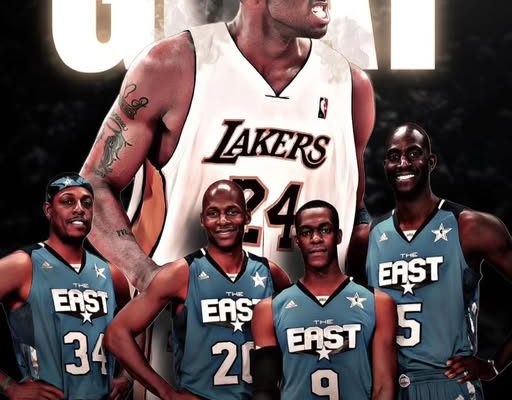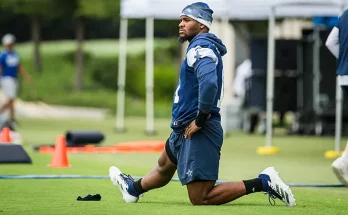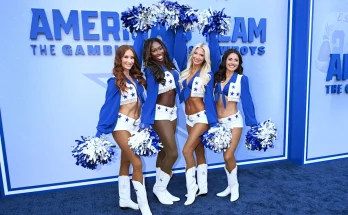When people talk about Kobe Bryant’s legacy, so many moments and milestones are immediately thrown into the conversation: the 81-point game against the Toronto Raptors, the back-to-back championships in 2009 and 2010, the three-peat with Shaquille O’Neal from 2000 to 2002, his gold medals with Team USA, and of course, his final 60-point performance in 2016 that perfectly closed the book on his legendary career. But among those achievements, one moment always stands out as a defining chapter, not only in Kobe’s career but in NBA history as a whole: the 2010 NBA Finals against the Boston Celtics. For many, that championship, his fifth and final ring, was the ultimate symbol of his resilience, competitiveness, and greatness. It wasn’t just another banner for the Lakers; it was deeply personal for Kobe. The narrative surrounding that Finals, the rivalry with Boston, and the way the series unfolded are what make people ask: was the 2010 Finals Kobe’s greatest career accomplishment?
To fully appreciate the significance of that 2010 victory, you have to rewind to 2008. That year, Kobe had finally climbed out of the shadow of Shaquille O’Neal and led the Lakers back to the NBA Finals. For years, critics said Kobe couldn’t win without Shaq. They said he was selfish, too difficult to play with, and not the kind of leader who could bring a team to the promised land on his own. When he did win MVP in 2008, it seemed like he was on the cusp of proving everyone wrong. But then came the Boston Celtics, led by the newly assembled Big Three of Paul Pierce, Kevin Garnett, and Ray Allen, along with a young Rajon Rondo. The 2008 Finals were brutal. The Celtics outmuscled the Lakers, exposed their weaknesses, and embarrassed them in a Game 6 blowout that ended with the Lakers being run off the floor. Kobe walked off that court not only defeated but humiliated. That loss stung him more than most defeats because it was the Celtics, the Lakers’ historic rival, and because it seemed to confirm every doubt people had about him as a leader without Shaq. For someone as prideful and competitive as Kobe, that was unacceptable.
Fast forward two years later, and the stage was set for redemption. In 2009, Kobe got his fourth ring by defeating the Orlando Magic in the Finals, finally shutting down the talk that he couldn’t win without Shaq. But while that championship was important, it didn’t erase 2008. Kobe himself admitted that the loss to Boston haunted him. The Lakers were back on top, but for him, the circle wouldn’t be complete until he beat the Celtics when it mattered most. As fate would have it, in 2010, he got his chance. Boston returned to the Finals after upsetting LeBron James’ Cleveland Cavaliers and Dwight Howard’s Orlando Magic. The Big Three, though older, were still formidable, and this time, the Lakers had Andrew Bynum healthier, Pau Gasol more battle-tested, and role players like Ron Artest (now Metta World Peace) and Derek Fisher ready for war. This wasn’t just another Finals—it was destiny, it was legacy, it was revenge.
The series itself lived up to every expectation. It was not pretty basketball; it was a slugfest. Every possession felt like a battle, with bodies hitting the floor, elbows flying, and defensive schemes suffocating scorers. Kobe was magnificent throughout, averaging 28 points per game in the series. He had nights where he single-handedly kept the Lakers alive, including a 38-point performance in Game 5 in Boston, even though the Lakers ultimately lost that game. But the Finals weren’t just about scoring. What made this series iconic for Kobe was that it demanded every ounce of willpower, resilience, and adaptability he had. By the time Game 7 rolled around, the Celtics had pushed the Lakers to their absolute limit. For Kobe, it wasn’t just about stats anymore; it was about survival and finding a way to win.
Game 7 at Staples Center is etched into history as one of the most intense and dramatic Finals games ever played. Kobe did not have his best shooting night—he shot just 6-for-24 from the field—but what made that performance legendary wasn’t efficiency, it was grit. He refused to let the Lakers lose, finding other ways to impact the game. He pulled down 15 rebounds, battled for loose balls, and trusted his teammates when the pressure mounted. It was in that game where we saw Kobe Bryant, the scorer, transform into Kobe Bryant, the complete warrior who would do whatever it took to win. Pau Gasol was massive in that game, Artest hit the dagger three, but it was Kobe’s relentless energy and leadership that carried the team through. When the final buzzer sounded, the Lakers had won 83–79, and Kobe had his fifth championship and second straight Finals MVP.
Why is this considered Kobe’s greatest accomplishment by so many? Because of everything it represented. First, it was redemption. The 2008 loss to Boston had been a scar, and 2010 healed it in the most poetic way possible: defeating the very same rival in a seven-game war. Second, it validated his leadership. Critics couldn’t say anymore that he couldn’t win without Shaq or that he wasn’t a leader. He had guided his team through adversity, leaned on his teammates when necessary, and lifted them when they needed him most. Third, it put him one step closer to Michael Jordan. With five rings, Kobe was within striking distance of Jordan’s six, and the comparisons between the two grew louder. For Kobe, whose entire career was shaped by his obsession with greatness, that fifth ring meant more than just jewelry—it was a statement that he belonged in the pantheon with the legends.
There’s also the emotional layer to it. That championship was Kobe’s most human moment. He wasn’t the unstoppable scorer who dropped 81 points or the young phenom flying through the air alongside Shaq. He was a battle-tested veteran, exhausted, bruised, and imperfect, who still found a way to will his team to victory. When he leapt onto the scorer’s table after the game, arms outstretched in triumph, the image captured the pure release of years of frustration, sacrifice, and obsession. That wasn’t just about winning a title; that was about vindication.
When we weigh whether the 2010 Finals was Kobe’s greatest accomplishment, it’s important to remember how much context matters in sports legacies. Numbers alone don’t tell the story. Sure, Kobe had more dominant statistical moments. His 81-point game remains one of the greatest individual feats in NBA history. His streaks of scoring outbursts during the mid-2000s were legendary. Even the 2009 championship, where he thoroughly outplayed everyone, might have been cleaner in terms of narrative. But greatness isn’t just about dominance; it’s about overcoming adversity, about proving something when the world doubts you. That’s what 2010 was all about. It wasn’t his best shooting series, but it was his most important victory.
The rivalry aspect also elevates it. Beating the Celtics for a Laker is different. Magic Johnson had to beat Boston to cement his own legacy. Jerry West spent much of his career haunted by Finals losses to the Celtics. For Kobe, adding a chapter to that Lakers-Celtics saga wasn’t just special—it was essential. It gave him a bond with Lakers history that transcended numbers. Winning against Orlando in 2009 was nice, but it didn’t carry the weight of history. Beating Boston in 2010 was personal and historic all at once.
Some might argue that Kobe’s 81-point game is his greatest individual accomplishment, and it’s hard to argue against it from a purely statistical standpoint. Others might point to his three-peat with Shaq, which was unprecedented in the modern era. But when you ask what moment truly defines Kobe Bryant, the competitor, the leader, and the icon, it’s hard not to point to the 2010 Finals. That series captured everything about him—the fire, the flaws, the perseverance, and the triumph. It was Kobe at his most human and his most heroic.
Even Kobe himself seemed to cherish that championship above the others. When asked about his favorite title, he often referred back to 2010 because of what it meant to beat Boston. That tells you everything you need to know. It wasn’t about the stats or even about the ring count. It was about the journey, the redemption, and the story it told. In that sense, it’s not just Kobe’s greatest accomplishment—it’s one of the greatest chapters in NBA history. For a player who built his career on chasing greatness, that moment was the one that tied it all together. Kobe didn’t need perfection; he needed victory, and in 2010, he earned the one that mattered most.
So, was Kobe’s 2010 Finals win his greatest career accomplishment? For many, the answer is yes. Not because it was his flashiest or most statistically dominant moment, but because it was the ultimate expression of what made Kobe Bryant who he was: relentless, fearless, obsessed with winning, and capable of turning pain into motivation. It was the ring that silenced doubts, avenged old wounds, honored Lakers tradition, and elevated his place in the pantheon of legends. In that war against the Celtics, Kobe didn’t just win his fifth ring—he won immortality.



